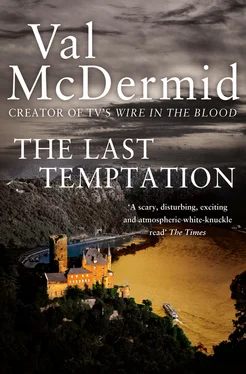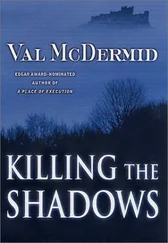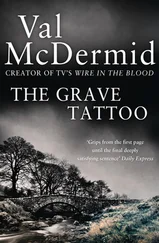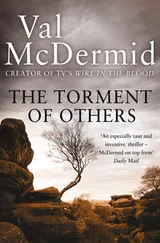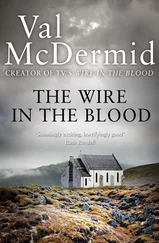Tadeusz nodded. ‘I heard the radio news earlier. Another two dead junkies in some shitty nightclub in Oranienstrasse.’
‘That makes seven, counting the one who died in intensive care.’ Krasic unbuttoned his overcoat and took a cigar case from his inside pocket.
‘I know.’ He dumped the beans in the grinder and killed all prospect of conversation for a few seconds. ‘I can count, Darko.’
‘So can the media. They’re kicking up a real stink, Tadzio. This isn’t going to go away. The cops are under a lot of pressure.’
‘That’s what we’re paying them for, isn’t it? To take the pressure and leave our people alone?’ He tipped the ground coffee into a cafetiere and poured the hot water over it.
‘Some things they can’t ignore. Seven dead, for example.’
Tadeusz frowned. ‘What are you saying, Darko?’
‘It’s gone past the point where our normal protection can take care of things. They’re going to arrest Kamal tonight. We’ve had our card marked, that’s as far as our man can stick his neck out right now.’ He lit his cigar and puffed luxuriously.
‘Fuck. Can we control what happens?’
Krasic shrugged. ‘It depends. If he’s looking at seven murder charges, Kamal might think it’s worth taking the risk of giving me up. Or even you. If they offer him immunity, he might decide his best chance is to take us off the streets. Give himself a breathing space and trust to the witness protection programme.’
Tadeusz pressed the plunger down slowly, his mind flipping through the options. ‘We’re not going to let it go that far,’ he said. ‘Time for the pawn sacrifice, Darko.’
Darko allowed himself a thin smile. Tadzio hadn’t lost it. ‘You want me to make sure he never gets as far as the police station?’
‘I want you to do whatever it takes. But make it look good, Darko. Give the press something to take their minds off all those dead wasters.’ He poured two cups of coffee, pushing one towards the Serb.
‘I’ve already got one or two ideas on that score.’ He raised his cup in a toast. ‘Leave it with me. You won’t be disappointed.’
‘No,’ Tadeusz said firmly. ‘I won’t be. Now, losing Kamal leaves us with a gap. Who’s going to fill it, Darko? Who’s got what it takes to walk in a dead man’s shoes?’
It had been a long day, but Brigadier Marijke van Hasselt was too wired for sleep. She’d delivered the results of the postmortem – death by drowning, as de Vries had tentatively predicted early on in the autopsy – at a briefing with her boss, Maartens, and her opposite number, Tom Brucke. Though none of them had said it in so many words, they really didn’t have a single lead.
They’d masked the insecurity this inevitably produced with the familiar police routines that they all knew in their bones. Briskly, Maartens had outlined the ground rules for the investigation, assigning tasks to one team or the other, acting as if this was a directed inquiry that already had its terms of reference clearly mapped out. But they all knew they were groping in the dark for Pieter de Groot’s killer.
Most murders were easy. They fell into one of three broad categories: domestic disputes jacked up one step too far; drunken brawls that escalated beyond the initial intent; or the incidentals of other criminal activity, usually connected to drugs or violent robbery. The Leiden killing didn’t fit any of these categories. Nobody in the victim’s immediate circle had an obvious motive, nor was this the kind of murder that arose from the engorged or embittered passions of domestic relationships. Besides, the ex-wife and the current girlfriend both had alibis, the one at home with her children, the other visiting her sister in Maastricht.
Maartens had remarked that they needed to take a look at his professional life. He couldn’t imagine that anyone at the university would have turned to murder to solve some scholastic dispute, but with so few threads to grasp, they had to be sure they weren’t missing the obvious. He’d heard that passions could run high in the rarefied atmosphere of academic research, and there were some very strange people around in higher education, especially in areas like psychology.
Marijke had said nothing, unwilling to provoke further her boss’s prejudice against university graduates like herself. Although Maartens was every bit as clued in about modern policing as any of his colleagues, he still clung to some of the old-school attitudes of his youth, and she didn’t want what was an already complicated investigation made any more awkward. She’d acknowledged his assignment of the university connection to her team with a quick nod. It would almost certainly be a complete waste of time, and it would have to wait until after the weekend, but she’d make sure the job was done thoroughly.
Tom Brucke’s team had begun their canvass of the neighbourhood, but so far they’d drawn a blank. Nobody had seen or heard anything that had any apparent relevance to the murder. It wasn’t the sort of area where a strange car would immediately be noticed by the neighbours, and few people paid attention to individual pedestrians on a street where there was regular foot traffic. Whoever had killed Pieter de Groot, he hadn’t drawn attention to himself.
Marijke had spent the rest of the day supervising a search of de Groot’s home, to see if there was anything that might be construed as a clue to the bizarre scenario that had been played out in the upstairs room. But there was nothing. She wondered about what was missing, however. There was no sign of a diary, desk calendar or personal organizer in the office. She couldn’t believe a man like de Groot wouldn’t have some sort of aide memoire for his appointments in his home office. She’d even had one of the technicians check over his computer to see if he kept an electronic diary, but that had drawn a blank too.
But sometimes absences held their own clues. To Marijke, this lack said that whoever had killed Pieter de Groot was no casual caller. He’d been expected, and he’d taken care to remove all trace of that appointment. If she was right, there was a chance that there might be a duplicate note of the arrangement in de Groot’s diary at the university. She made a note to herself to make sure she was there when they entered his office, and set one of her officers the task of getting them admission first thing in the morning.
Eventually, she grudgingly accepted there was nothing more for her to do. Her team was busy with the tedious routine of sifting material and information that would probably prove useless. They didn’t need her. The best way she could serve the inquiry now was to go home and let her mind turn over what little they knew. Sleep, she always found, was the best possible state in which to uncover new angles of approach.
But sleep wasn’t going to come any time soon, Marijke knew. She poured herself a glass of wine and settled herself down in front of her computer. Some months previously, she’d become a subscriber to an on-line newsgroup for gay police officers. Not that there was any problem with being a lesbian and a Dutch police officer, nor did she have a ghetto mentality. But sometimes it was helpful to have what she thought of as a room of one’s own and, via the newsgroup, she’d developed close friendships with a handful of other officers whose take on the world chimed comfortingly with her own. More than that, she’d formed a bond of particular intimacy with a German colleague. Petra Becker was a criminal intelligence officer in Berlin and, like Marijke, senior enough not to be entirely comfortable with close confiding relationships with her colleagues. Like Marijke, Petra was also single, another damaged survivor of the attrition of their career on relationships. They’d been cautious with each other at first, escaping from the newsgroup into private live chat rooms where they could write more openly about thoughts and feelings. They were both aware that each had found some special connection to the other, but they were equally reluctant to push for a face-to-face encounter in case it shattered what they valued.
Читать дальше
